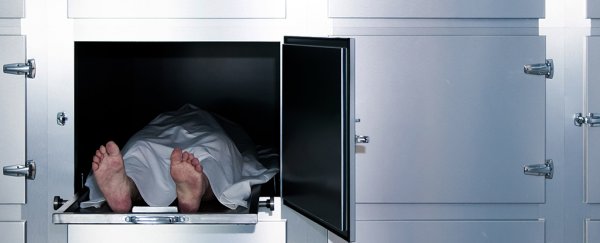Taphophobia – or the fear of being buried alive – is one of the most common phobias. For good reason, too, as the idea of waking up inside a coffin is a fairly horrifying one.
Doctors are usually pretty certain when they declare someone dead. But according to reports from the Spanish newspaper La Voz de Asturias, one man was recently sent to the morgue, only to be heard snoring a few hours later.
The article says Gonzalo Montoya Jiménez, an inmate at a jail in the Asturias region of Spain, was dead by three separate doctors.
He apparently regained consciousness mere hours before an autopsy was due to be performed on him, as his family say he had the markings drawn on him ready to be opened up.
Luckily, before the procedure started, Jiménez started showing signs of life, and was quickly transferred to a nearby hospital.
For three medical professionals to get such an important diagnosis wrong is almost unheard of. But hospital sources told Spanish news channel Telecinco that it could be the result of the man having an unusual medical condition.
Catalepsy is "a condition characterised by inactivity, decreased responsiveness to stimuli, and a tendency to maintain an immobile posture," according to the National Center for Biotechnology Information (NCBI).
Often, the person's vital signs such as breathing and heartbeat drop to very low levels, so they are nearly undetectable, even by doctors.
A person's limbs "tend to remain in whatever position they are placed," NCBI says, which can be mistaken for rigormortis – the third stage of death.
Catalepsy can sometimes be a symptom of epilepsy, which La Voz de Asturias reported Jiménez suffers from. He may have missed taking his medicine in the past few weeks due to the unpredictability of prison, the family said.
When Jiménez was "resurrected," the first thing he did was ask for his wife.
Doctors said his brain was deprived of oxygen for a while, but he is able to speak and remember things, which are both good signs.
This article was originally published by Business Insider.
More from Business Insider:
